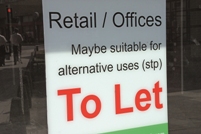
The government has announced the second wave of enterprise zones, intended to kick-start the UK’s sluggish economy and create 30,000 jobs in high-tech industries by 2015.
The first 10 zones located in English cities such as Manchester, Birmingham and Newcastle were named in the spring, but a further 11 have now been added to the list of sites.
Each zone will focus on a specific area of technology and new businesses operating from the sites will receive £150m in tax breaks over the next four years as well as super-fast broadband access. Hinckley in Leicestershire and Gosport in Hampshire will become automotive industries, transport and defence hubs and south Oxfordshire will deal with advanced materials engineering.
A new zone in Hereford will specialise in defence, while Newquay in Cornwall will concentrate on aerospace. Sandwich in Kent, Harlow in Essex and Alconbury in Cambridgeshire will focus on biotechnology and pharmaceuticals, while Lowestoft and Great Yarmouth in Suffolk as well as Humberside will handle offshore wind farms. Northampton will promote precision engineering and north Warrington will host a science park.
“We are determined to do everything we can to make Britain the best place in the world to start and grow a business,” said prime minister David Cameron.
“Enterprise zones are a major step towards delivering this, cutting business taxes, easing planning restrictions and giving business the tools they need to invest and expand.”
Cameron added that the enterprise zones would be trailblazers for growth, jobs and prosperity throughout the country.
The scheme has been compared to similar initiatives in the 1980s and 1990s, which were criticised for being expensive and failing to deliver. However, communities and local government secretary Eric Pickles told BBC Radio 4’s Today programme that enterprise zones had been successful in some areas such as Sunderland and the Docklands, although he acknowledged that they had led to business displacement and a flood of retail parks.
“This has the same name, but it has got a slightly different purpose. These are about specific sites against specific industries.”


